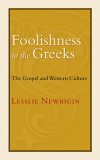Faith and Sight
"In a world so easily satisfied with images, it’s too easy to waste our lives watching mindless television and squandering our free time away with entertainment. We have a higher calling. God has called us to live our lives by faith and not by sight—and this can mean nothing less than committing our lives to the pursuit of language, revelation, and great books.Reinke, Tony (2011-09-07). Lit!: A Christian Guide to Reading Books (p. 50). Good News Publishers. Kindle Edition.
Spurgeon on God’s Providence
I believe that every particle of dust that dances in the sunbeam does not move an atom more or less than God wishes. That every particle of spray that dashes against the steamboat has its orbit as well as the sun in the heavens. That the chaff from the hand of the winnower is steered as surely as the stars in their courses. That the chirping of an aphid over a rosebud is as much fixed as the march of the devastating pestilence, and the fall of sere leaves from the poplar is as fully ordained as the tumbling of an avalanche. He who believes in God must believe this truth. There is no standing point between this and atheism. There is no half way between an almighty God who worketh all things according to the good pleasure of his own will and no god at all. A god who cannot do as he pleases; a god whose will is frustrated; is not a God, and cannot be a God; I could not believe in such a god as that.
- From the sermon, God’s Providence, from Ezekiel 1:15-19
Barrenness in the Ministry

Reading Words to Winners of Souls by Horatius Bonar is a good way for preachers to start the year. It is a small book that packs a big punch. It brings excellent conviction and exhortation for us to begin a new year of ministry.
Here are Bonar’s words on being satisfied with a barren ministry:
To deliver sermons on each returning Lord’s Day, to administer the Lord’s Supper statedly, to pay an occasional visit to those who request it, to attend religious meetings—this, we fear, sums up the ministerial life of multitudes who are, by profession, overseers of the flock of Christ. An incumbency of thirty, forty or fifty years often yields no more than this. So many sermons, so many baptisms, so many sacraments, so many visits, so many meetings of various kinds-these are all the pastoral annals, the parish records, the ALL of a lifetime’s ministry to many! Of souls that have been saved, such a record could make no mention.
Multitudes have perished under such a ministry; the judgment only will disclose whether so much as one has been saved. There might be learning, but there was no tongue of the learned to speak a word in season to him that is weary.” There might be wisdom, but it certainly was not the wisdom that “winneth souls.” There might even be the sound of the gospel, but it seemed to contain no glad tidings at all; it was not sounded forth from warm lips into startled ears as the message of eternal life—”the glorious gospel of the blessed God.” Men lived, and it was never asked of them by their minister whether they were born again! Men sickened, sent for the minister and received a prayer upon their death-beds as their passport into heaven. Men died, and were buried where all their fathers had been laid; there was a prayer at their funeral and decent respects to their remains; but their souls went up to the judgment seat unthought of, uncared for; no man, not even the minister who had vowed to watch for them, having said to them, Are you ready?—or warned them to flee from the wrath to come.
Is not this description too true of many a district and many a minister? We do not speak in anger; we do not speak in scorn: we ask the question solemnly and earnestly. It needs an answer. If ever there was a time when there should be “great searching of heart” and frank acknowledgment of unfaithfulness, it is now when God is visiting us—visiting us both in judgment and mercy. We speak in brotherly kindness; surely the answer should not be of wrath and bitterness. And if this description be true, what sin must there be in ministers and people! How great must be the spiritual desolation that prevails’! Surely there is something in such a case grievously wrong; something which calls for solemn self-examination in every minister; something which requires deep repentance.
Divine Guidance

“‘I being in the way, the Lord led me’ (Genesis 24:27). The servant was actively following the Lord, and therefore the Lord directed his steps. ‘The steps of a good man are ordered by the Lord: and he delighteth in his way’ (Psa. 37:23). ‘In all thy ways acknowledge him, and he shall direct thy paths’ (Pro. 3:6). The Lord leads along the path, a step at a time; but before He can lead us along the path, we must be on the path. When a man is doing God’s will, as best he knows it, and is willing to do His further will even before he knows it, then he will know His will as soon as he need to.” (Henry Morris, The Genesis Record, p.398).

“God’s dearest servants are not always gratified in everything they have a mind to. Yet all who delight in God, have ‘the desire of their hearts fulfilled (Psa. 27:4), though all the desires in their heart be not humored.” (Matthew Henry Quoted in The Life of Arthur W. Pink by Ian Murray, p. 96).
Statements on the Gospel
I could not count the times that I have been reading a passage that I have read many times before, when the text just grabs me! This happened recently while I was reading Paul’s account of his conversion and calling to preach the gospel in Acts 26. Jesus appeared to him and said, “For I have appeared unto thee for this purpose, to make thee a minister and a witness both of these things which thou hast seen, and of those things in the which I will appear unto thee” (Acts 26:16). Before we move to the primary statement in verse 18, let us consider a couple of things from this verse.
Saul was brought to a confrontation with the Lord of Glory, Whom he previously did not own. Saul was made to bow, submit to the sovereign lordship of Jesus Christ. Note that in exercise of His kingly authority (all authority in heaven and in earth), Jesus makes demands of Saul—“I have appeared unto thee for this purpose.” He says that Saul is not free to do as he pleases, rather is under the yoke of Christ. The message of salvation that Saul received was not a message of a personal escape from trouble and trial. It was not a liberation of the flesh to serve self without guilt. It was a message that meant owning the dominion of the Most High and serving Him fervently with his whole person. Paul would later exhort the Romans to offer themselves as living sacrifices, consecrating their whole selves to God.
Jesus called Saul to be a minister and a witness. He was to preach the gospel, evangelize, do missionary work. The words of Jesus constrained him in this work—“To open their eyes, and to turn them from darkness to light, and from the power of Satan unto God, that they may receive forgiveness of sins, and inheritance among them which are sanctified by faith that is in me” (Acts 26:18). The message he had received was the message he took to the world. He saw his work as to turn men from the darkness of their idolatries, no matter how sophisticated, and reprove them of their false loyalties. He declared to them the true and living God, Creator of heaven and earth, and men must “turn” to Him “that they may receive forgiveness of sins, and inheritance. . .”
This gospel message seems lost to many in our day. Salvation is turned into a personal escape and reward. It is counted among myriad remedies for the various problems of modern man. A gospel of decision and choice is foisted upon eager “seekers”. Modern men have tried a number of things to help them and so they will give religion its fair chance. The result of this is individualistic, selfish lives that do not bow to the lordship of Jesus Christ. A religion that gets them where they want to go.
Solomon said, “Where the word of a king is, there is power” (Ecclesiastes 8:4). The gospel is none other than the word of the King, and not surprisingly, it has power. The word for power in Ecclesiastes 8:4 is a word that means authority or bearing rule. The king has authority and speaks with power. The gospel is the word of the King that speaks with power, authority and He is to be obeyed, reverenced, and served.

Along this line, I read another great statement on the gospel the other day.
The church is the bearer to all the nations a gospel that announces the kingdom, the reign, and the sovereignty of God. It calls men and women to repent of their false loyalty to other powers, to become believers in the one true sovereignty, and so to become corporately a sign, instrument, and foretaste of that sovereignty of the one true and living God over all nature, all nations, and all human lives. It is not meant to call men and women out of the world into a safe religious enclave but to call them out in order to send them back as agents of God’s kingship.
(Leslie Newbigin, Foolishness to the Greeks—The Gospel and Western Culture, p. 124).








